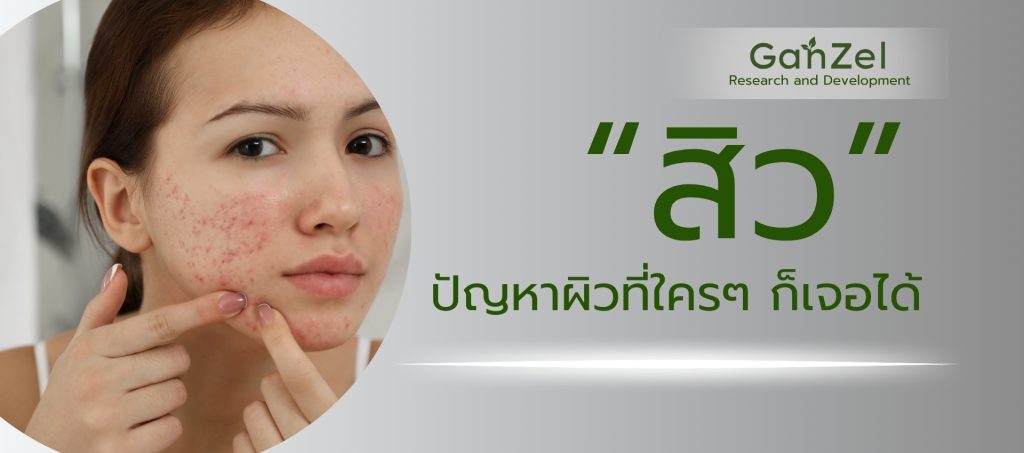Beauty Problems
Acne: A Common Skin Problem for Everyone
Acne: A Common Skin Problem for Everyone
Acne is a common skin issue that affects both males and females, especially during adolescence when hormonal changes are significant. However, some people may experience this problem from childhood or even in adulthood. Studies have shown that acne significantly impacts patients’ quality of life[1].
What is Acne?
Acne is an inflammation of hair follicles and sebaceous glands, commonly found on the face, neck, chest, and back, areas with large sebaceous glands. Pathological studies show that acne occurs due to follicular occlusion combined with increased sebum production and proliferation of Cutibacterium acnes bacteria[2].
Why Does Acne Occur?
The causes of acne involve multiple factors, both internal and external, such as:
- Internal factors: Genetics, gender, age, hormones, certain diseases
- External factors: Certain medications, cosmetics, diet, environment, stress
Studies have shown that genetic factors play a significant role in acne development. It has been found that if parents have acne, their children have a higher chance of developing acne[3].
Types of Acne
Acne can be classified into several types:
- Non-inflammatory acne: Such as whiteheads (closed comedones) and blackheads (open comedones)
- Inflammatory acne: Such as papules, pustules, nodules, and cysts
Severity of Acne
Acne can be categorized into 3 levels of severity:
- Mild: Mostly comedones or less than 10 inflammatory lesions
- Moderate: More than 10 inflammatory lesions or less than 5 large nodules
- Severe: Numerous inflammatory lesions, including large nodules and cysts
Acne Treatment Methods
There are several treatment methods for acne, depending on its severity:
- Topical medications: Such as retinoids, benzoyl peroxide, or salicylic acid
- Oral antibiotics: Such as tetracycline group antibiotics
- Adjunctive treatments: Such as intralesional injections, laser therapy, or light therapy
Studies have shown that combining topical and oral medications yields better results than topical treatment alone, especially in moderate to severe acne cases[4].
Effects of Acne
Acne can cause:
- Hyperpigmentation and erythema
- Raised or depressed scars
- Psychological effects such as loss of confidence or depression
Studies have found that acne patients have a higher risk of developing depression and anxiety compared to the general population[5].
Care and Prevention Methods
- Avoid picking or squeezing acne
- Cleanse the skin regularly
- Use products suitable for your skin type
- Consult a dermatologist for severe acne problems
- Maintain overall health: Exercise, eat a healthy diet, get adequate rest
Studies have shown that early acne treatment can effectively reduce the chances of scarring and psychological impacts[6].
Proper skincare for acne-prone skin and early treatment can help reduce the chances of scarring and psychological effects. Remember that acne is a common issue that anyone can face, but we can manage it with proper and consistent care.
References
[1] Tan, J. K., & Bhate, K. (2015). A global perspective on the epidemiology of acne. British Journal of Dermatology, 172, 3-12.
[2] Tanghetti, E. A. (2013). The role of inflammation in the pathology of acne. The Journal of clinical and aesthetic dermatology, 6(9), 27-35.
[3] Bataille, V., Snieder, H., MacGregor, A. J., Sasieni, P., & Spector, T. D. (2002). The influence of genetics and environmental factors in the pathogenesis of acne: a twin study of acne in women. Journal of Investigative Dermatology, 119(6), 1317-1322.
[4] Thiboutot, D., Gollnick, H., Bettoli, V., Dréno, B., Kang, S., Leyden, J. J., … & Shalita, A. (2009). New insights into the management of acne: an update from the Global Alliance to Improve Outcomes in Acne group. Journal of the American Academy of Dermatology, 60(5), S1-S50.
[5] Vallerand, I. A., Lewinson, R. T., Parsons, L. M., Lowerison, M. W., Frolkis, A. D., Kaplan, G. G., … & Patten, S. B. (2018). Risk of depression among patients with acne in the UK: a population-based cohort study. British Journal of Dermatology, 178(3), e194-e195.
[6] Tan, J., Boyal, S., Desai, K., & Knezevic, S. (2016). Oral isotretinoin: new developments relevant to clinical practice. Dermatologic Clinics, 34(2), 175-184.

